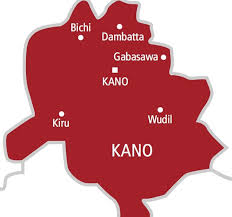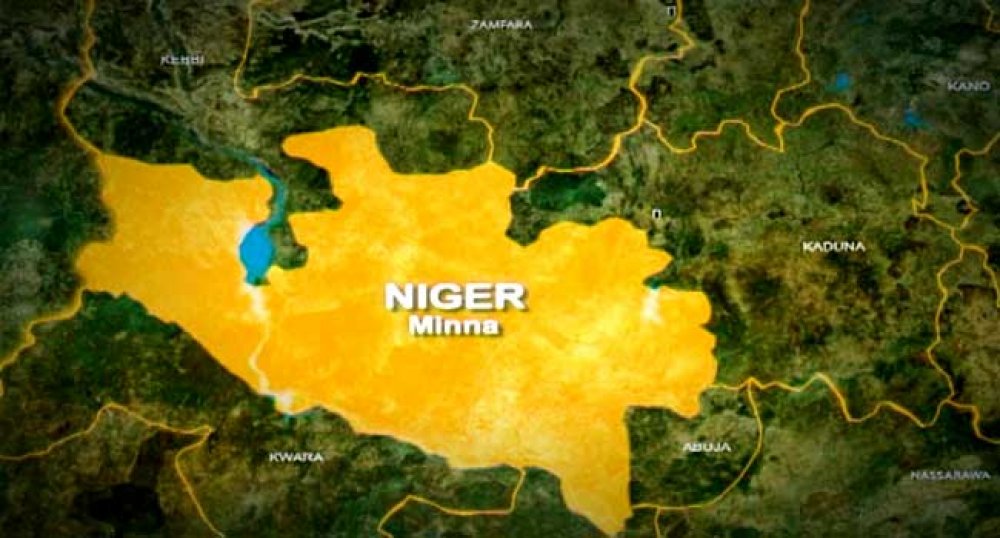NEWS
Zambia Seeks Dangote’s Assistance in Developing Fertiliser Industry

By Edozie Obasi-Eze
The Zambian Minister of Commerce and Industry, Chipoka Mulenga, has sought the assistance of the President, Dangote Group, Aliko Dangote in the development of his country’s agricultural sector.
He made the request while leading led a delegation from Zambia on tour of the 3.00 million metric tonnes Dangote Fertiliser plant at the weekend, where he also expressed a desire for a collaboration between Dangote Group and the Zambian government in the establishment of fertiliser plant in the southern African country.
Mulenga expressed belief that any investment in fertiliser production will not only help the country to be self-sufficient in food production, it will also help grow the Zambian economy as well as that of the neigbouring countries.
According him, the Zambian government has created an enabling environment for local and foreign investment through great incentives to attract investment in all sectors of the economy.
“The Zambian government in the last budget made some pronouncements which focus on value addition, industrialisation, skill enhancement and development. We have a huge youthful population who are ready to work if given the opportunity to be productive,” he said.
He described Zambia as Africa’s new investment destination because of its stable political system, stable macroeconomic environment and investment protection guarantees.
He said that Zambia is strong in agriculture and even seeking to become stronger through having its own Fertiliser plant. “Rather than continue to import Fertiliser from anywhere, we want Aliko Dangote to come and establish plant in Zambia. The country’s fertiliser consumption has increased tremendously in the last few years and has continued to increase. I am happy that we no longer have to go outside of Africa to seek investors. Dangote has been able to change the narratives through his investment in cement production across Africa. We now have Africans investing in the Africa continent. Dangote has already established the biggest cement plant in Zambia. Dangote Cement Zambia has a remarkable portfolio and is bringing positive change to the cement industry, not only in Zambia, but also to other neigbouring countries,” he added.
READ ALSO: Q2 Results: Dangote Cement Grows Revenue by 17% to N808bn
Mulenga commended the President/CE of Dangote Group, Aliko Dangote for investing massively in fertiliser production in Nigeria. “This could only happen because the company put the right people, right leadership, right technical skills and the right management in place to have such a remarkable result. This Fertiliser Plant is not only serving the needs of Nigeria, but also attracting foreign exchange into the continent. This is a good demonstration that we can have this kind of investment in any part of Africa, which can grow and be beneficial to other countries.”
He therefore enjoined Nigerians to guard Dangote investments and other local investments in Nigeria. “Let all Nigerians support this investment to grow from strength to strength. This is amazing and we will like to have a similar investment in Zambia.”
On his part, Chief Executive Officer, Dangote Fertiliser Limited, Vishwajit Sinha said demand for Urea fertiliser in the Nigerian market and beyond remains robust and is expected to continue to grow.
According to him, the $2.5 billion fertiliser complex would make Nigeria self-sufficient in fertiliser production with excess capacity exported to other African countries and the rest of the world.
“The key focus of Dangote Fertiliser has always been to cater to the growing fertiliser demand of the domestic market in Nigeria and also to work towards bringing a green revolution in the country so as to contribute towards food security for Nigeria. The surplus production after supplying the domestic market is exported,” he added.
Sinha stated that Dangote Fertiliser is positioned to take advantage of the Federal Government’s policy, which focuses on agriculture as one of the keys to unlock the diversification of the Nigerian economy.
“As population is increasing, food consumption is changing. Many countries’ economic progress is linked to agricultural development, which is the best form of inclusive development. For all the countries that I have been to, I can see the potential of agriculture in the entire value chain from the farm to the kitchen in Nigeria.
“Dangote Fertiliser has the potential to transform the entire African region. Definitely it will have a huge value on the country,” he added.
Sinha described Dangote Fertiliser plant as a company which will not only increase food-sufficiency in Nigeria, but also drastically reduce the level of unemployment and youth restiveness in the country through the generation of direct and indirect employment.
NEWS
Kano Businessman’s Daughter Kidnapped After ₦8m Ransom Payment

In a shocking incident on Sunday morning, unknown gunmen suspected to be kidnappers invaded the home of Alhaji Auwal, a prominent businessman, in Garo Town, Kabo Local Government Area of Kano State.
The gunmen, estimated to be around 10 in number, forced their way into the residence, breaking down a door to gain entry.
An anonymous source revealed that the attackers were heavily armed, with three carrying firearms and the rest wielding other weapons.
READ MORE: Tinubu Urges Stakeholders To Join Forces To Restart Oil Production In Ogoniland
They quickly gathered the entire family in one room, instilling fear and panic in the household.
According to the source, Alhaji Auwal pleaded with the assailants to spare his family and agreed to meet their demands.
The kidnappers, who were determined to extort money, received ₦8 million from the family.
Despite this payment, the gunmen took the businessman’s eldest daughter, Zainab, a secondary school graduate, before fleeing the scene.
The whereabouts of Zainab remain unknown, and as of now, the kidnappers have not contacted the family.
This abduction comes just 48 hours after the tragic kidnapping and subsequent murder of former Gombe State Permanent Secretary, Atiku Mu’azu, who was killed by gunmen after a ₦10 million ransom was paid.
The two incidents have left the residents of Kano in shock and fear, prompting calls for increased security measures in the area.
Attempts to reach the spokesperson for the Kano Police Command, SP Abdullahi Haruna, for comment were unsuccessful as his phone remained unreachable.
Authorities have yet to make any official statements regarding the investigation.
International News
Colombia Blocks US Deportation Flights Over Migrant Treatment

In a bold move, Colombian President Gustavo Petro declared on Sunday that he would not allow US deportation flights carrying Colombian migrants to access his country’s airspace.
The left-wing leader took to X (formerly Twitter) to express his strong stance, stating, “The United States cannot treat Colombian migrants as criminals. I forbid entry to our territory to US planes carrying Colombian migrants.”
Petro made it clear that such flights would only be accepted once Washington established a protocol to ensure the “dignified treatment” of deported migrants.
READ MORE: How Trump Plans To Grow American Economy By $1 Trillion Daily
The president later confirmed in a separate post that he had already turned back US military planes that were en route with Colombian migrants on board, although he did not provide further specifics on the matter.
While AFP sought confirmation from US authorities regarding the blockade of deportation flights, no immediate response was forthcoming.
Petro’s statements come just a day after Brazil’s government voiced similar outrage over the treatment of deported Brazilians.
Brazil condemned the US administration under President Donald Trump, citing instances where Brazilian migrants were deported while handcuffed on flights, describing it as a “flagrant disregard” for their basic rights.
In his remarks, Petro emphasized that he would be open to allowing civilian US flights to transport deported migrants as long as they were not subjected to treatment “like criminals,” signaling a broader call for humane treatment of migrants under international deportation policies.
NEWS
Four Dead, Many Injured As Explosion Rocks Niger State Mining Site

An explosion at a mining site in Sabon Pegi, Mashegun Local Government Area of Niger State, claimed the lives of four individuals and left several others injured on Sunday morning.
The blast occurred as miners resumed operations, sending shockwaves through the community.
While the exact cause of the explosion remains undetermined, local residents have pointed to the poor handling of explosive devices by mining companies as a possible factor.
READ MORE: Thisday Awards: Diana Ross Arrives In Nigeria
The incident has sparked concerns about safety practices within the mining sector.
Community sources confirmed the recovery of four bodies, but authorities fear the death toll could rise.
Investigations are ongoing to establish the cause of the blast and assess the full extent of the damage.
One resident, Aminu, described the chaos that followed the explosion. “The sound was so loud that many of us thought it came from the hydroelectricity dam nearby. People panicked and ran into the bush for safety,” he recounted.
Another community member highlighted the potential role of mining operations in the tragedy.
“Mining companies here frequently use explosives during their activities, and this seems like an operational issue, not something related to terrorism,” the resident said, dismissing concerns about a security threat in the area.
As of the time of reporting, neither the state government nor security agencies have released an official statement regarding the explosion.


















